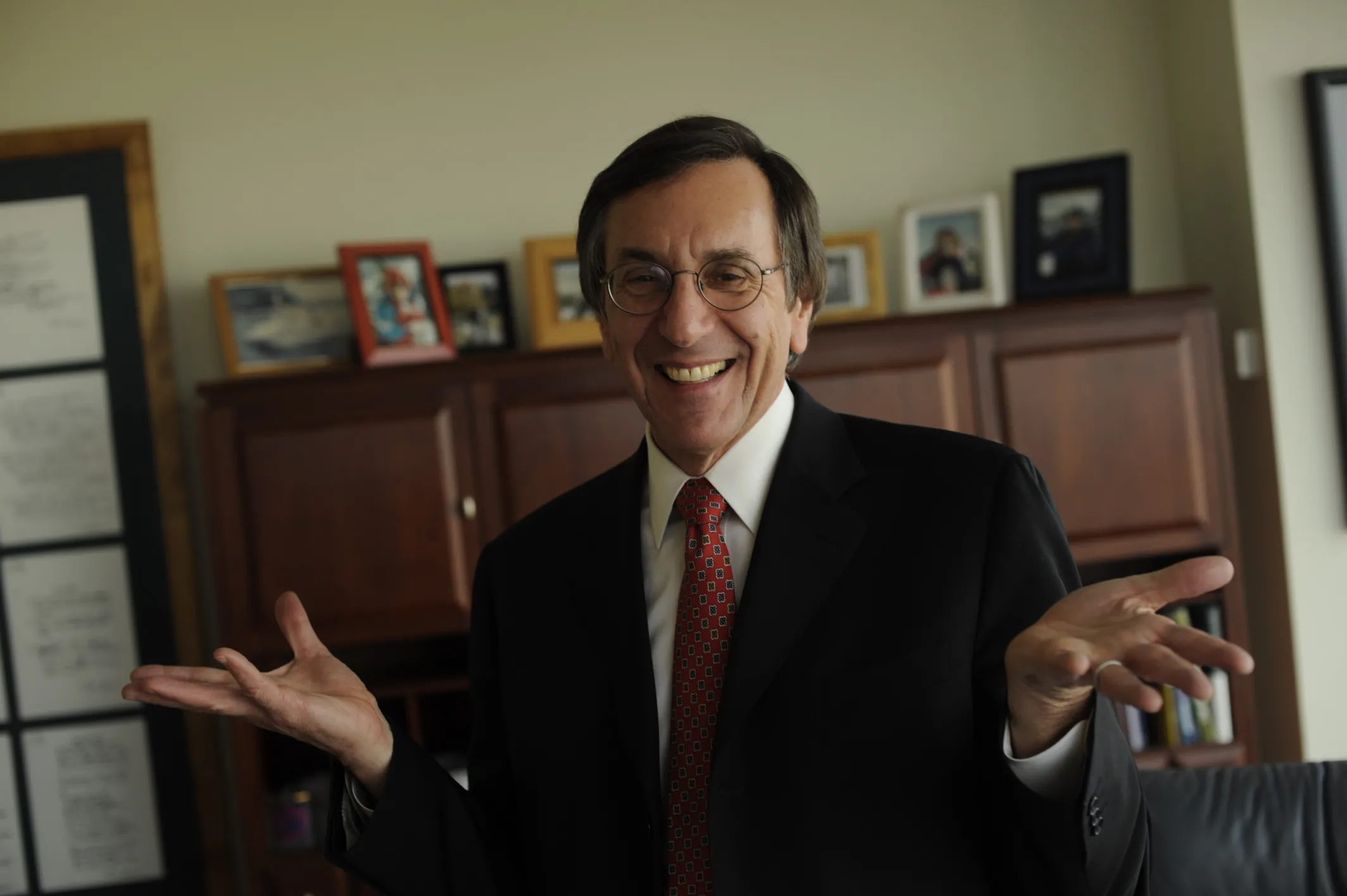Mark Aronchick, ’74: Master Litigator, Public Interest Advocate, and Proud Family Man

This year the Philadelphia law firm cofounded and chaired by Mark Aronchick, ’74—Hangley, Aronchick, Segal, Pudlin & Schiller—further consolidated its reputation for excellence, being named 2014 Pennsylvania Firm of the Year by Benchmark Litigation, recognized as a “Pennsylvania Powerhouse” by Law360, and honored for excellence by Chambers USA.
Aronchick himself recorded a major victory this year, adding to the lustrous reputation he has earned during his career. He was lead counsel along with the American Civil Liberties Union in the federal lawsuit that overturned Pennsylvania’s ban on same-sex marriage. The case, Whitewood v. Wolf, was so persuasively argued and so conclusively decided that not only has Pennsylvania’s conservative governor declined to pursue an appeal, he has actively helped to discourage other possible interveners.
In a career with many highlights, Aronchick says of Whitewood v. Wolf, “of all the things I’ve done in my professional life, this has been among the most important and the most affirming. Americans are reexamining their prejudices, and those misconceptions concerning our gay and lesbian citizens are evaporating. At no time in our constitutional history has there been such rapid rethinking of who we want to be. It has been so great to be a part of it.”
Only a small sampling of Aronchick’s notable accomplishments can be provided here. Just eight years out of law school, he was appointed as the youngest City Solicitor in Philadelphia’s history. He was one of the only attorneys in Pennsylvania ever to serve as president of the Philadelphia Bar Foundation and Chancellor of the Philadelphia Bar Association. He is a fellow of the American College of Trial Lawyers. He maintains a diverse, high-profile national trial and appellate practice, is deeply engaged in politics and governance from the national to the local level, and serves on the boards of many community organizations.
At the Law School, he has served an extended term on the Visiting Committee, and he has been a forceful advocate for programs to advance public interest law. He funded one of the first fellowships for students and alumni practicing public interest law, and he serves on the dean’s advisory committee. “I count myself as remarkably blessed,” he says. “I had wonderful parents and grew up in a small town with a diverse community. I met my wife Judi—who is now a radiology professor at the medical school of the University of Pennsylvania—when we were undergraduates, and we’ve been together more than 43 years. I always have had great mentors. My kids are spectacular. My faith is strong. My firm is successful. And I include the Law School right up there with the greatest blessings of my life. I was taught by an amazing faculty, and my time at the Clinic was transformative, shaping my sense of what could be accomplished through the law. If the Law School has a more outspoken cheerleader than me, I’d like to meet that person.”
He’s also looking out for future generations in many ways: mentoring many young people at any given time, teaching at the University of Pennsylvania Law School, helping to develop a careful succession plan so his firm retains its leadership position, and acting in many arenas to achieve a just society.
He sees his children doing their parts, too. Son Jonathan followed up a degree from Brown with service on the US Senate Committee for Environment and Public Works and is now pursuing a law degree at Georgetown, where he is an articles editor of the law journal. Daughter Sara Aronchick Solow, with a Yale Law degree, just finished clerking for Justice Breyer. She was one of a core group of five people who directly helped Barack Obama prepare for his debates before the 2012 election. He and his wife are, in his words, “over the moon” about their one-and-a-half-year-old grandson Ethan and are awaiting the birth of a second grandchild this fall.”
My kids are so much better, in their values and skills, than I was at their age, and so are so many of the younger people that I encounter,” he says. “I am very hopeful. I think our country’s future is in good hands.”


